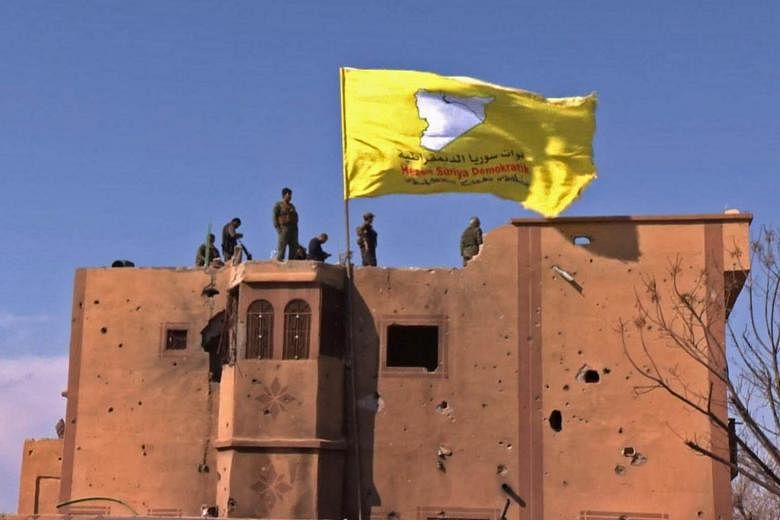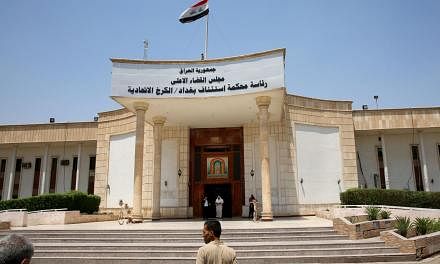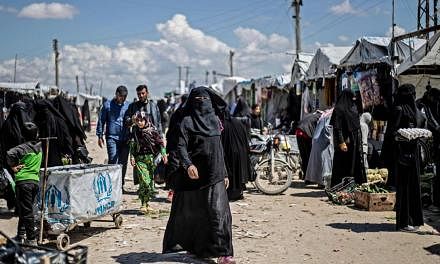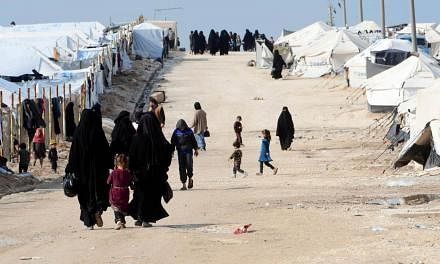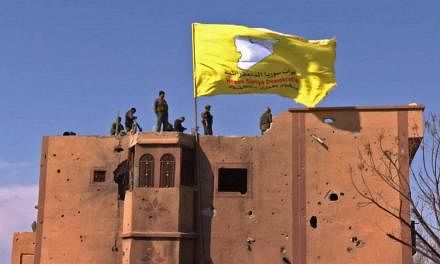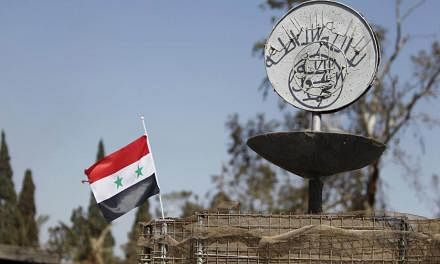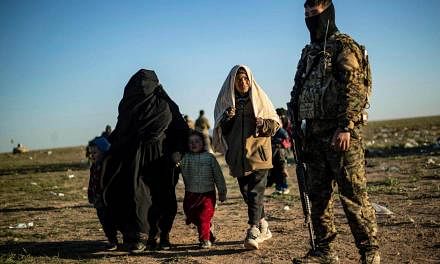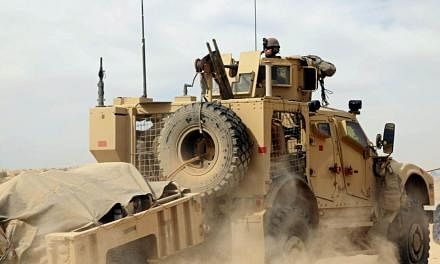BAGHDAD (AFP) - With the demise in Syria of the Islamic State in Iraq and Syria's (ISIS) vision of a cross-border "caliphate", the Islamists are strengthening their roots in neighbouring Iraq more than a year after Iraqi authorities proclaimed their defeat.
In July 2017, then Iraqi prime minister Haider al-Abadi declared victory in the northern metropolis of Mosul after a nearly nine-month offensive. Five months later, he declared ISIS had been vanquished in Iraq at the end of a three-year war.
But security officials say terrorist sleeper cells remain holed up in mountainous or desert regions north of Baghdad or in western Iraq along the border with Syria, still inaccessible to Iraqi forces.
These largely rural Sunni-majority areas are located in the provinces of Salaheddin, Kirkuk, Anbar, Diyala and Nineveh - home to Mosul, once the de facto Iraqi capital of the ISIS group's "caliphate".
Diehard extremists continue to carry out bloody attacks against civilian and military targets despite US-led coalition air strikes and efforts by Iraqi security forces to track them down and arrest fighters.
"Every day there are operations against the sleeper cells," said Iraqi General Najm al-Juburi, who heads operations in Nineveh province.
Iraqi forces regularly issue reports claiming to have killed a number of Islamists during fighting and, since recapturing Mosul, they have arrested "2,500 terrorists", Gen Jubburi said referring to ISIS fighters.
In Kirkuk province, also north of Baghdad, Islamists have killed a dozen village leaders just in the past six months, according to local officials.
At the same time, "they have carried out 55 bomb attacks against the police and on several occasions damaged the electricity infrastructure", General Saker Kawin of Iraq's federal police told AFP.
INACCESSIBLE ZONES
Now amid the rout of Islamists from their last stand in eastern Syria thanks to a fierce offensive by US-backed Kurdish-led Syrian forces who declared a total victory on Saturday (March 23), concerns are mounting that ISIS fighters will spill across the border back into Iraq.
Authorities are desperately trying to secure an area of more than 600 square kilometres along the porous frontier between Iraq and Syria riddled with ancient smuggling routes.
Iraqi forces have at times managed to repel ISIS incursions along the border, "but in certain areas, fighters easily navigate isolated and rugged terrains between Syria and Iraq", a security source said.
Speaking on condition of anonymity, the source said these fighters are well armed and use vehicles to move around the desert and mountainous regions along the border.
These areas, security officials say, were inaccessible to Iraqi forces well before the rise of ISIS, and remain so today.
'REVENGE'
After the 2003 US-led invasion of Iraq that toppled dictator Saddam Hussein, Al-Qaeda militants and other Sunni armed groups dug a warren of tunnels in those areas to serve as hideouts and weapons caches.
Such areas are the ancestral homes of Sunni tribes often perceived to be cooperating with ISIS extremists by Iraqi paramilitary forces, who have now taken control of the surrounding zones.
The continued presence of ISIS extremists in Iraq is also taking its toll on some 1.8 million internally displaced people (IDPs), many of whom are tribes from those areas, rights groups said.
Driven from their homes by years of fighting and violence, members of these tribes now live in sprawling camps and many are refusing to return home for fear of "revenge" attacks, said Amnesty International.
"Revenge is everywhere," said Ms Razaw Salihy, Iraq researcher at Amnesty International.
According to her, "the IDPs who are not going home" are doing so because "they fear... their own relatives", family members who either never left or who have chosen to go back to their towns and villages.
"They do not believe that their own relatives can be trusted", because in the eyes of some, "IS has become a joker card" which can be used by some against others in issues such as land disputes, she said.
An April report by Amnesty revealed that women and children perceived of having links to ISIS and living in IDP camps were denied aid and prevented from returning to their homes.
Women were also "subjected to rape and sexual exploitation" by security forces, administrators of camps and local officials, Amnesty said at the time.
Ms Salihy said there is concern for the children of these women, describing the youngsters as like "ticking bombs".
"The children will not forget that their mothers or families have been humiliated," she said.
Human rights groups have also voiced concern about hundreds of quick trials of suspects of links to ISIS, some of whom they say only testified under torture.
